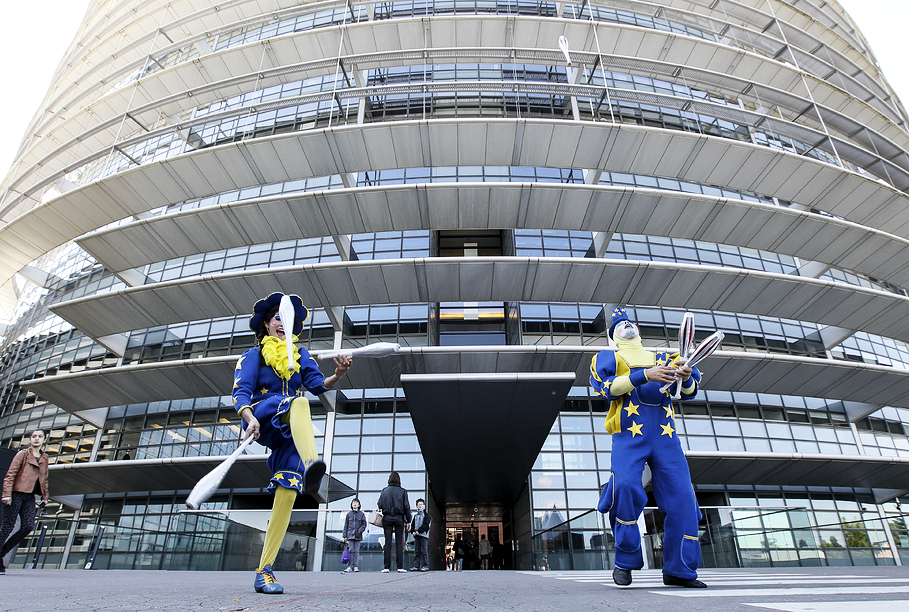Some of Latvia’s new European lawmakers shared first impressions upon their arrival this week with Latvian Public Radio. They have mostly been spending their time settling in, searching for lodgings, hiring aides and assistants and divvying positions on various EP committees.
Artis Pabriks from the Unity alliance, who has served in Latvia’s government as both defense and foreign affairs minister, has found an experienced German national whom he hopes to hire as his parliamentary office manager.
“It’s really not that easy, since there are so many things to learn in such a short time. Of course it’s a nuisance that administrative problems – signing papers, learning the Internet – get mixed up with one’s wish to begin some real political work. Hiring this veteran will help adjust to the job faster, but I must say we haven’t been able to sign his contract for all the bureaucracy. So both of us are half-unemployed at the moment,” said Pabriks.
The search for staff is also on the minds of MEP’s Andrejs Mamikins of the Harmony Center and Iveta Grigule of the Greens-Farmers’ Union. Even incumbent Krišjānis Kariņš of Unity will be turning over an assistant this term.
Grigule, who has joined the right-wing eurosceptic group Europe of Freedom and Democracy (EFD), told Latvian Public Radio that she has even consulted with radical French politician Marine Le Pen, whom she inadvertently bumped into while having coffee, and who remains unaffiliated. Asked about her fellow EFD group members who turned their backs on the EP’s opening ceremony during the EU anthem, Grigule said that was their personal business.
“We’re diverse. See, we have a free democratic state and so is the EU in its strong support for an individual’s freedom of choice. Great Britain’s UKIP party’s position is to hold a referendum on participation in the EU. And their opinion is: if we’re not allowed to use our national flags and anthems, then neither will we support this type of event,” she explained.
Already serving his third term as MEP, Roberts Zīle of the National Alliance said he felt no stress or anxiety starting the new session in the European Conservatives and Reformists Group.
“I’ve got a feel for the routine, for the right moment to choose a committee to join. I’m sure I’ll continue in the Transport Committee, possibly in a coordinator’s position, which is like a spokesman for our parliamentary group. And we are the third-largest group right now. So this will be a more influential position than before. Then there’s monetary and economic affairs, which I did two-and-a-half years ago as well,” Zīle added.
On her part Sandra Kalniete of Unity, who was the first MEP from the Baltic states to ever become a deputy chair of the European People’s Party (Christian Democrats) group, said she was glad that the new EP has more female members than ever before, which means it is starting to better represent the diversity of Europe’s citizenry.



























